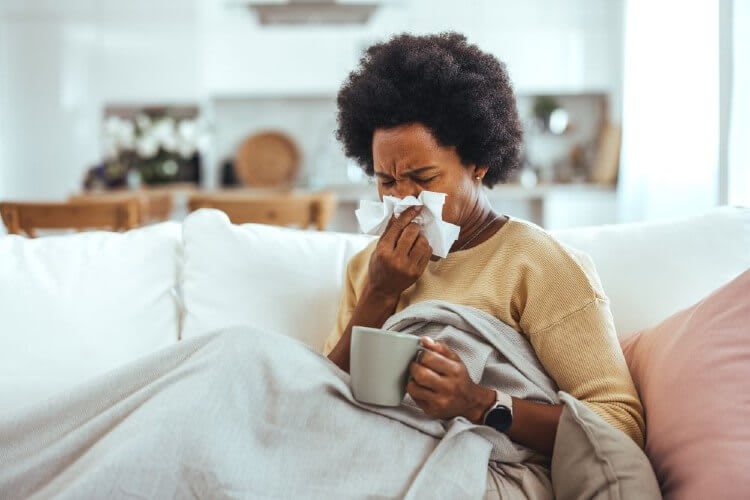Ease Cold & Flu Symptoms
Published: September 16, 2021l
By Joann Lodescar, MD, Stamford Health Medical Group
Though COVID-19 still dominates headlines, seasonal cold and flu viruses are making their way into schools, homes, and workplaces, too. Learn how to recognize these common illnesses and care for yourself or a loved one who’s sick.
Cold Symptoms
It’s likely a cold if you experience:
Fever from a cold is uncommon in adults but may occur with children.
Flu Symptoms
You may have the flu if you experience:
Though COVID-19 still dominates headlines, seasonal cold and flu viruses are making their way into schools, homes, and workplaces, too. Learn how to recognize these common illnesses and care for yourself or a loved one who’s sick.
What are signs of the cold and the flu?
Sore throat, fatigue, and a stuffy nose are often the first signs of a cold or flu. These viruses cause an infection of the upper respiratory system: the mouth, nose, throat, and lungs.Is it a cold or flu?
Symptoms are the easiest way to figure out which type of illness you have.Cold Symptoms
It’s likely a cold if you experience:
- Coughing
- Mild chest discomfort or congestion
- Mild fatigue
- Sneezing
- Sore throat
- Stuffy or runny nose with yellow or green mucus
- Watery eyes
Fever from a cold is uncommon in adults but may occur with children.
Flu Symptoms
You may have the flu if you experience:
- Body aches
- Chest discomfort and congestion
- Chills or sweats
- Coughing
- Fever that can last up to four days
- Headache
- Long-lasting fatigue or exhaustion
- Loss of appetite
- Nausea
- Runny or stuffy nose
- Sore throat
Cold & flu home remedies
Nothing can cure a cold or flu, but these things can help you find comfort:- Humidifiers to provide moisture in your home to reduce congestion
- Ibuprofen to relieve pain; follow the box for directions on the correct dosage and frequency
- Rest to allow your body to heal
- Saline nasal drops and spray to help with stuffiness and congestion
- Water, juice, broth, and non-caffeinated tea with lemon to help you stay hydrated
- Warm liquids and honey to help congestion and reduce coughing
Should I see a doctor?
See a doctor if you have:- Difficulty breathing or shortness of breath
- Dizziness or confusion
- Extreme weakness
- Fever or cough that improves but then returns or worsens
- Dehydration (meaning you haven’t gone to the bathroom in eight hours or more)
- Seizures
- Severe muscle pain
- Symptoms that are worsening
Where to get care
Your primary care doctor is usually your best choice when you think you have a cold or flu.Looking for a Primary Care Physician (PCP)?
Let us help you find the right doctor for your needs.
More Blogs Like This
May 11, 2017


























)